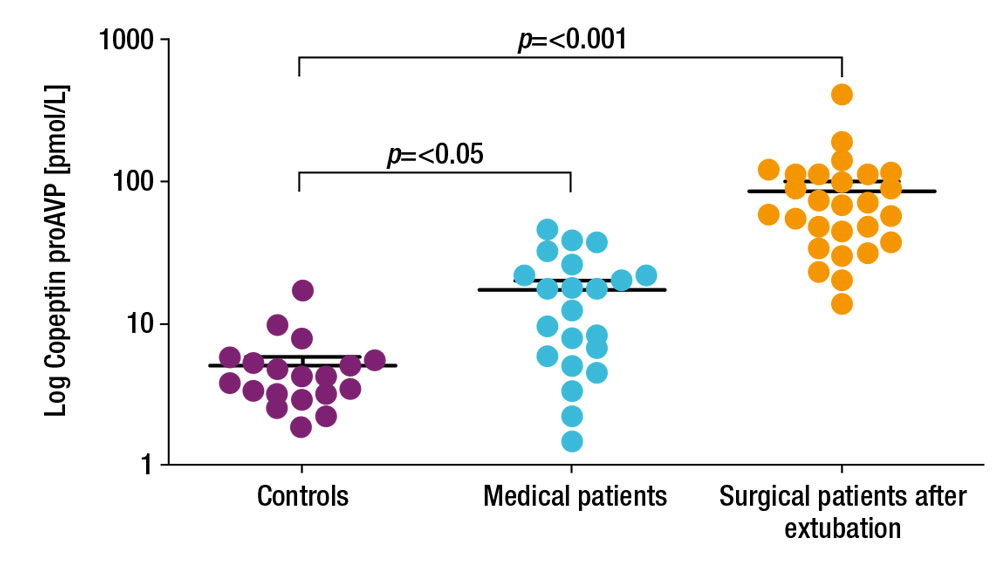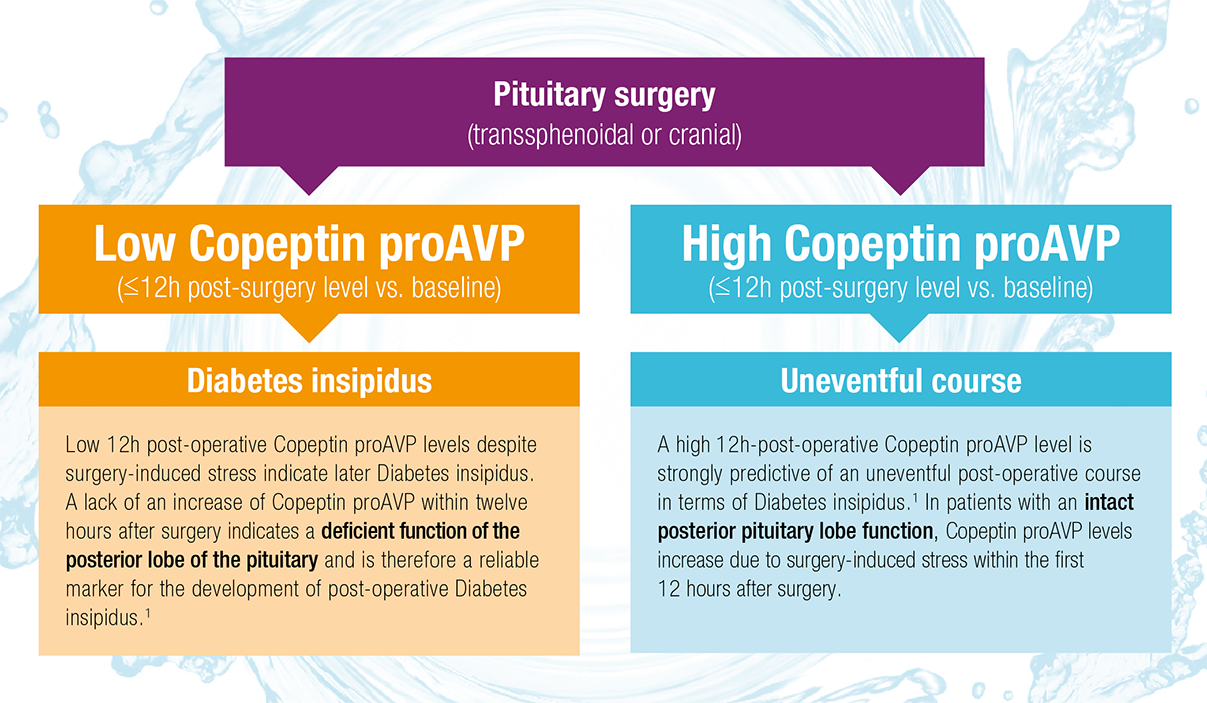Diabetes Insipidus After Neurosurgery
Copeptin - a promising novel tool in the early goal directed management of patients after pituitary surgery
 Copeptin levels in controls, medical patients and surgical patients after extubation, mirroring three different levels of physical stress Ref-4
Copeptin levels in controls, medical patients and surgical patients after extubation, mirroring three different levels of physical stress Ref-4
Surgery is a stressful event known to stimulate hypothalamic stress hormone release. Ref-2, Ref-3 Maximal stress is generally experienced after extubation and it has been shown that Copeptin levels multiplied after surgical treatment. Ref-4
Manipulation of the pituitary gland during neurosurgery may alter its secretory function. 16-34% of patients undergoing pituitary surgery developed a post-operative Diabetes insipidus (DI).Ref-5 DI is therefore the most common cause of prolonged hospital stay. Ref-6
Although the disease is self-limiting and benign in the majority of cases, Diabetes insipidus occasionally develops into severe hypernatremia and hyperosmolality if the deficit of fluids is not immediately replaced. Therefore, a timely and accurate diagnosis followed by an appropriate patient management is crucial. Ref-7, Ref-8
Copeptin forms the C-terminal part of pre-provasopressin. Upon stimulation, vasopressin and Copeptin are released from their storage granules in the pituitary and rapidly enter the bloodstream in equimolar amounts. Ref-9, Ref-10 Thus, Copeptin can be considered a true surrogate marker of vasopressin.
 Association of postoperative Copeptin levels and Diabetes insipidus in patients after pituitary surgery Ref-1
Association of postoperative Copeptin levels and Diabetes insipidus in patients after pituitary surgery Ref-1
References Diabetes insipidus after neurosurgery
Ref-1: Winzeler B et al., J Clin Endocrinol Metab 2015;100 (6),Jun: 2275-82
Ref-2: Donald RA et al., Clin Endocrinol (Oxf) 1993; 38, 609-15
Ref-3: Udelsman R et al., J Clin Endocrinol Metab 1987; 64, 986-94
Ref-4: Katan M, et al., Neuro Endocrinol Lett 2008; 29, 341-6
Ref-5: Hensen J et al., Clin Endocrinol (Oxf) 1999; 50, 431-9
Ref-6: Verbalis JG, Pituitary 2002; 5, 119-32
Ref-7: Anderson RJ, Kidney Int 1986; 29, 1237-47
Ref-8: Berl T, Kidney Int 1990; 37, 1006-18
Ref-9: Holwerda DA, Eur J Biochem 1972; 28(3): 334-9
Ref-10: Holwerda DA, Eur J Biochem 1972; 28(3): 340-6
